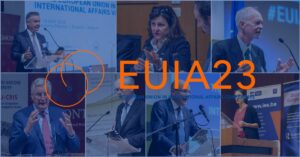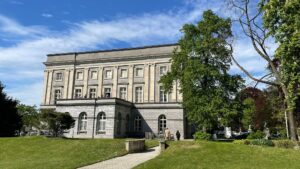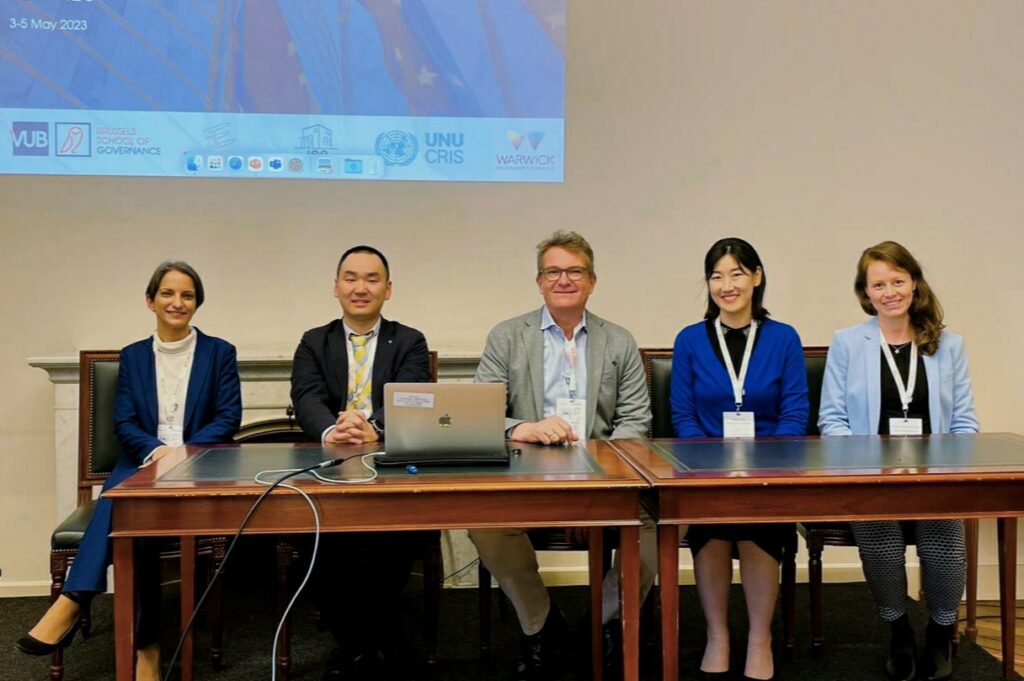CEAC at the EUIA2023 Conference in Brussels
The European Union in International Affairs (EUIA) Conference, a major forum for academics and policymakers to discuss the role of the EU in addressing global challenges, took place from 3-5 May 2023. The eighth edition focused on the theme of “Europe’s Pathways to (Dis)Engagement with the World.”
The conference was held in person in Brussels at the Royal Academy of Sciences and featured high-level keynote speakers, roundtables, an editors’ debate of leading academic journals, and cutting-edge multidisciplinary presentations by leading scholars from around the globe.
The Centre for EU-Asia Connectivity (CEAC) participated in a panel entitled “Connectivity and Security: The Case of EU-Asia Relations”. The panel highlighted the unique and interdisciplinary research and collaboration by Ruhr-Universität Bochum (RUB) and the University of Duisburg-Essen (UDE) within the AREA Ruhr – Alliance for Research on East Asia Ruhr. It consisted of Ph.D. candidates from RUB and UDE and was moderated by Prof. Sebastian Bersick.
Moderator: Prof. Dr. Sebastian Bersick, Executive Director of the Centre for EU- Asia Connectivity (CEAC), Jean Monnet Centre of Excellence, Jean Monnet Chair, and Head of Department, International Political Economy of East Asia, Faculty of East Asian Studies, Ruhr-Universität Bochum
Panellist 1 Mireia Paulo, Ruhr-Universität Bochum:“Conceptualisation of Data Security: A Comparison of the European and Chinese Approach”
Panellist 2 Yuqiao Li, Ruhr-Universität Bochum: “Maintaining Chinese routes’ transport security across Euroasia”
Panellist 3 Bohyun Kim, Universität Duisburg-Essen: “Legitimizing nuclear energy as green: EU’s- and South Korea’s securitization of 2050 Net-Zero”
Panellist 4 Johanna Rust, Ruhr-Universität Bochum: “EU-China Energy Policy: The Case Study of Central Asia
#EUIA23 provided a platform for interdisciplinary and international scholarly dialogue and exchange on the diverging pathways for the EU to act beyond its borders and play a more impactful role in global and regional affairs. The program was open to a wide range of disciplines in the social sciences and humanities, as well as to interdisciplinary fields. The thematic sections reflected and spotlighted the multitude of policy domains and actors involved, including perspectives of how non-European actors, such as international organizations, non-state actors, and multinational corporations, perceived and reacted to the EU’s involvement or its disentanglement.
#EUIA23 was jointly organized by the Brussels School of Governance at the Vrije Universiteit Brussel (BSoG-VUB), the United Nations University Institute on Comparative Regional Integration Studies (UNU-CRIS), the Institut d’études européennes at the Université libre de Bruxelles (IEE-ULB), Egmont – the Royal Institute for International Relations, and the Department of Politics and International Studies (PAIS) of the University of Warwick.


